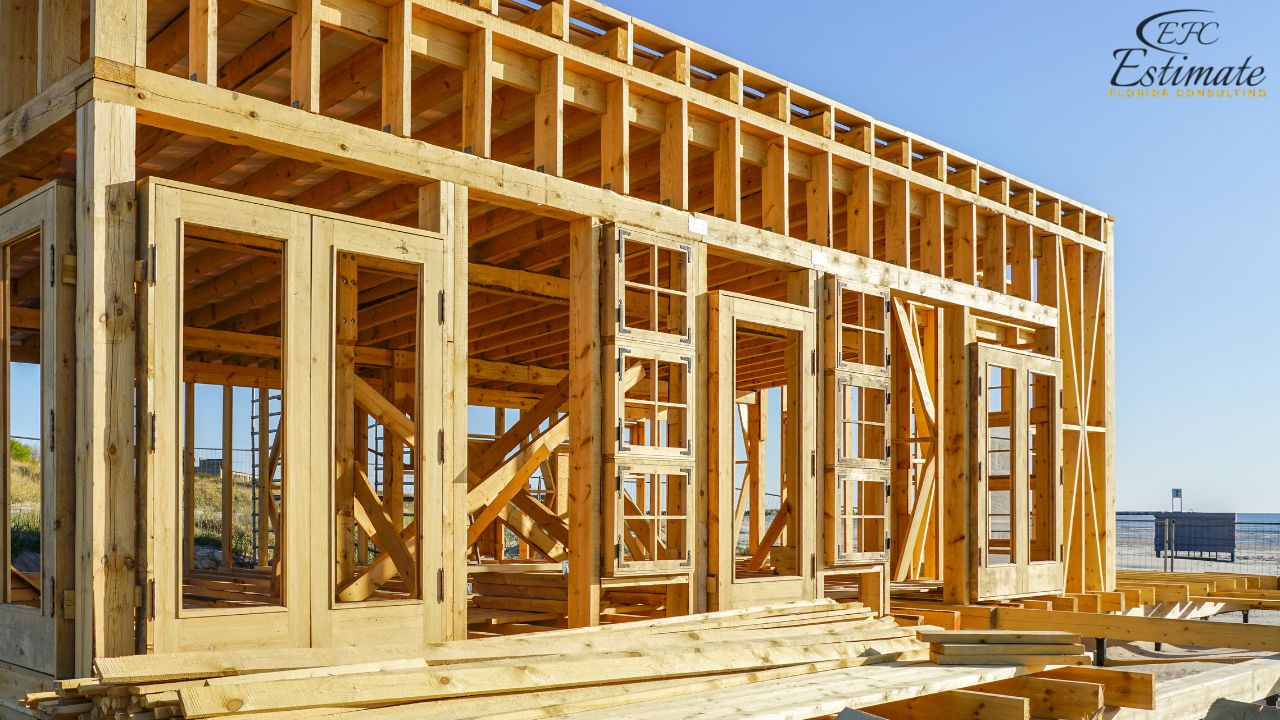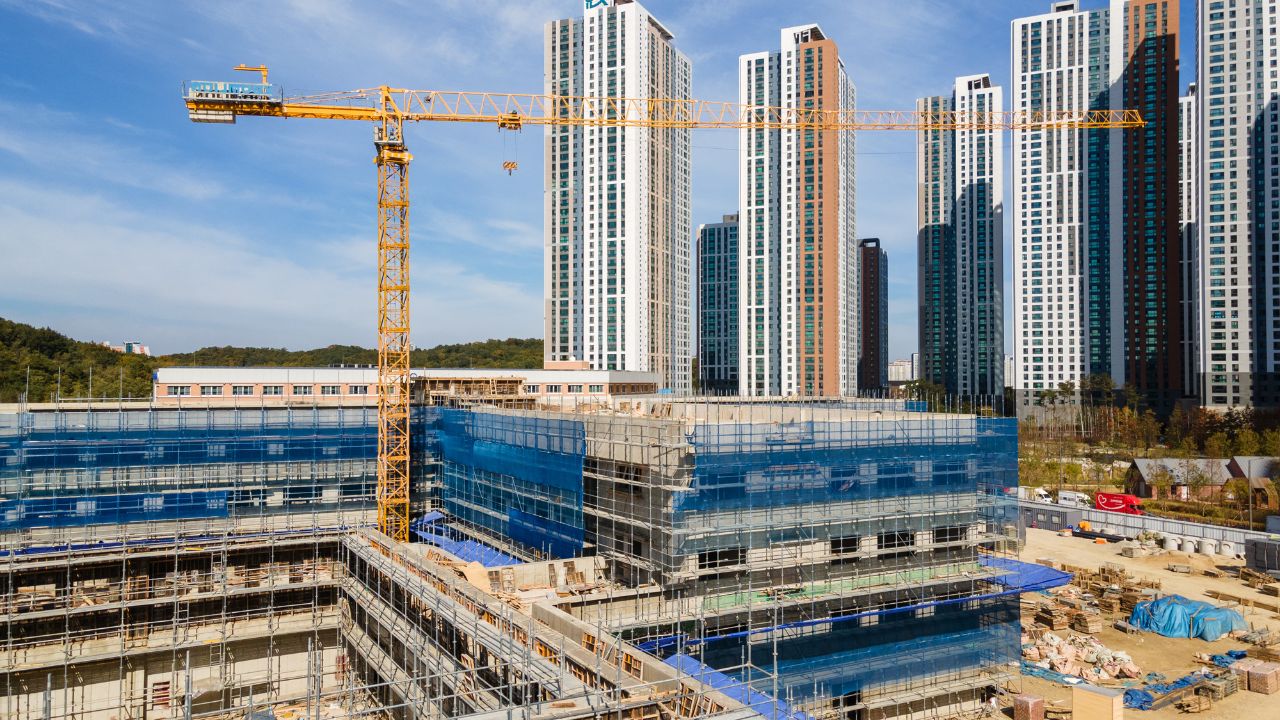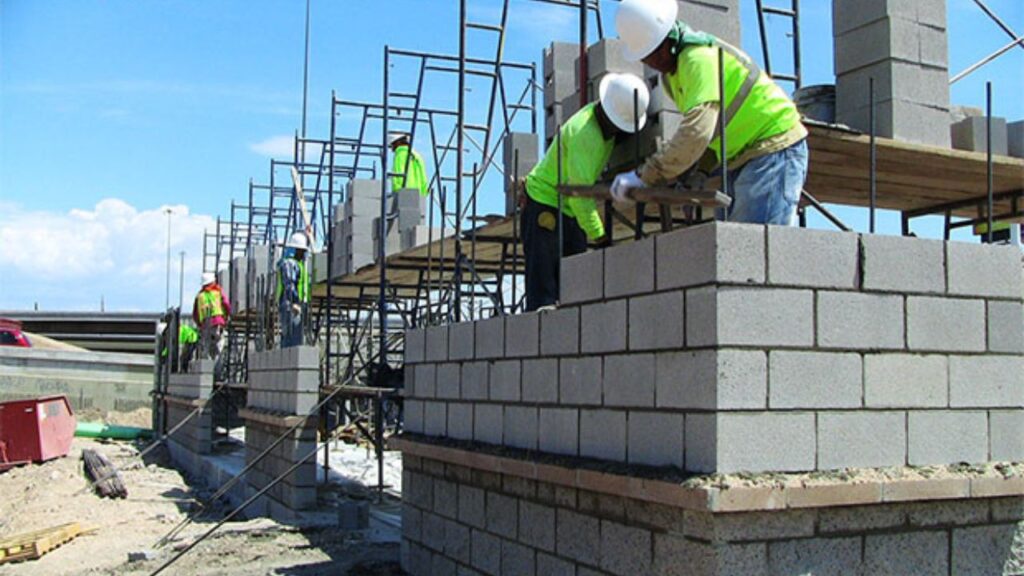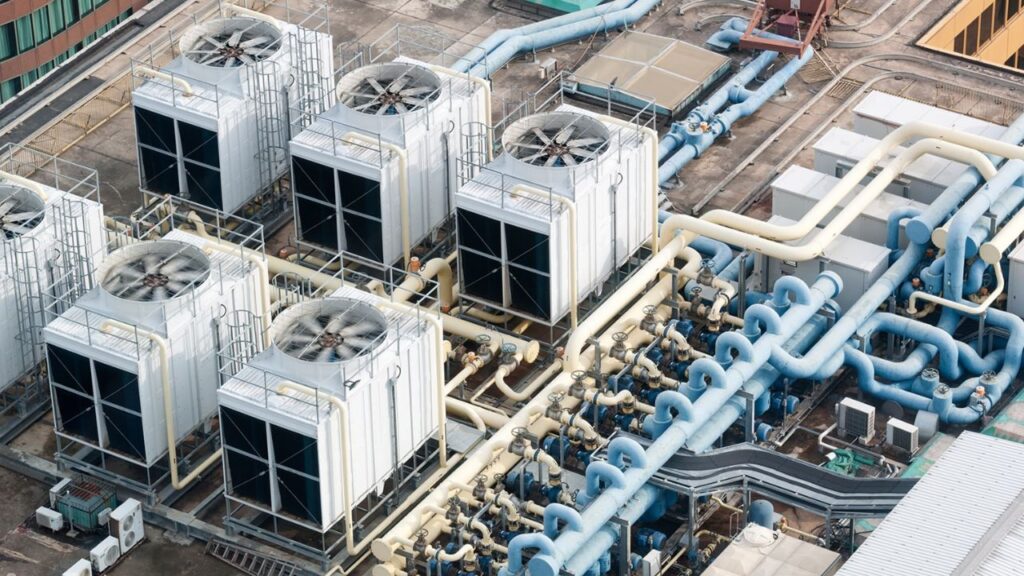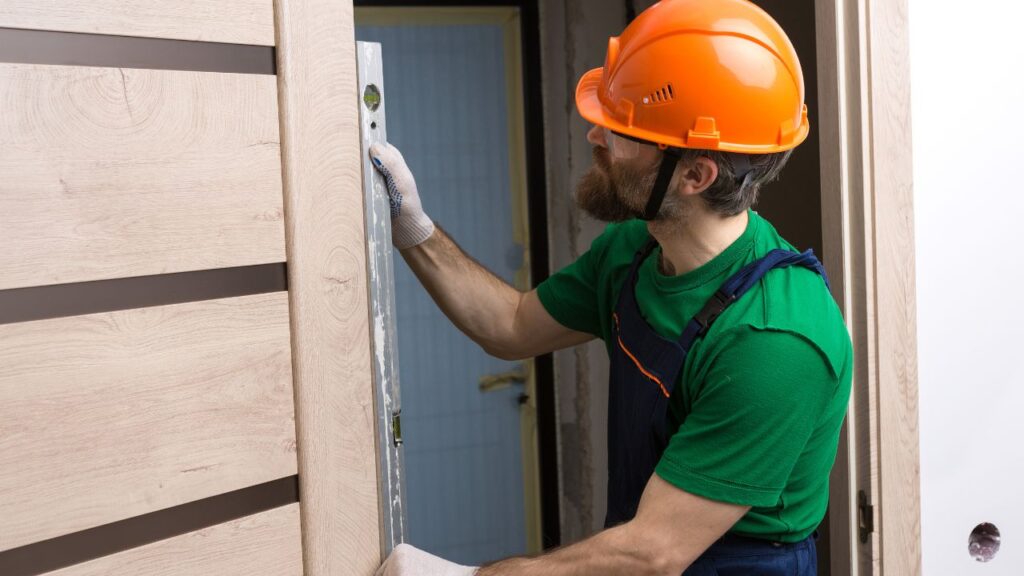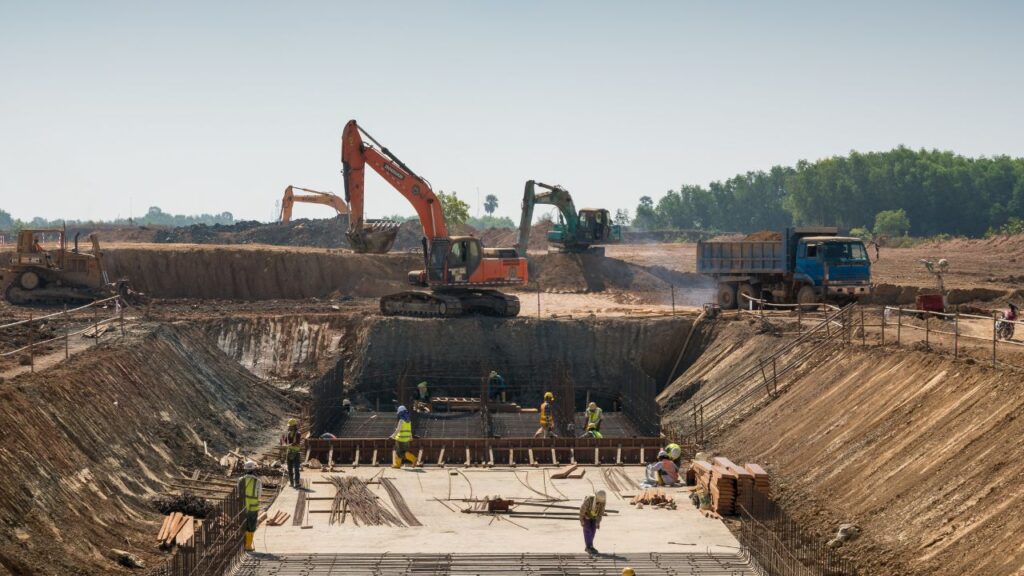- Homepage
- Construction In South Miami
- Cost Estimator In South Miami
Construction Cost Estimator in South Miami
Leading provider of construction estimating.
South Miami, FL, is a sought-after destination known for its pristine beaches, luxurious properties, and vibrant community. Its picturesque waterfront locations and high-end market make it a hub for residential and commercial development. Construction projects in South Miami require meticulous planning, accurate budgeting, and strict adherence to local building codes and environmental regulations. Whether constructing custom beachfront homes, commercial spaces, or undertaking renovations, understanding the unique challenges and costs associated with building in South Miami is critical. This comprehensive guide explores the key factors influencing construction costs, provides detailed cost estimates, and offers strategies for effectively managing your budget to ensure project success.
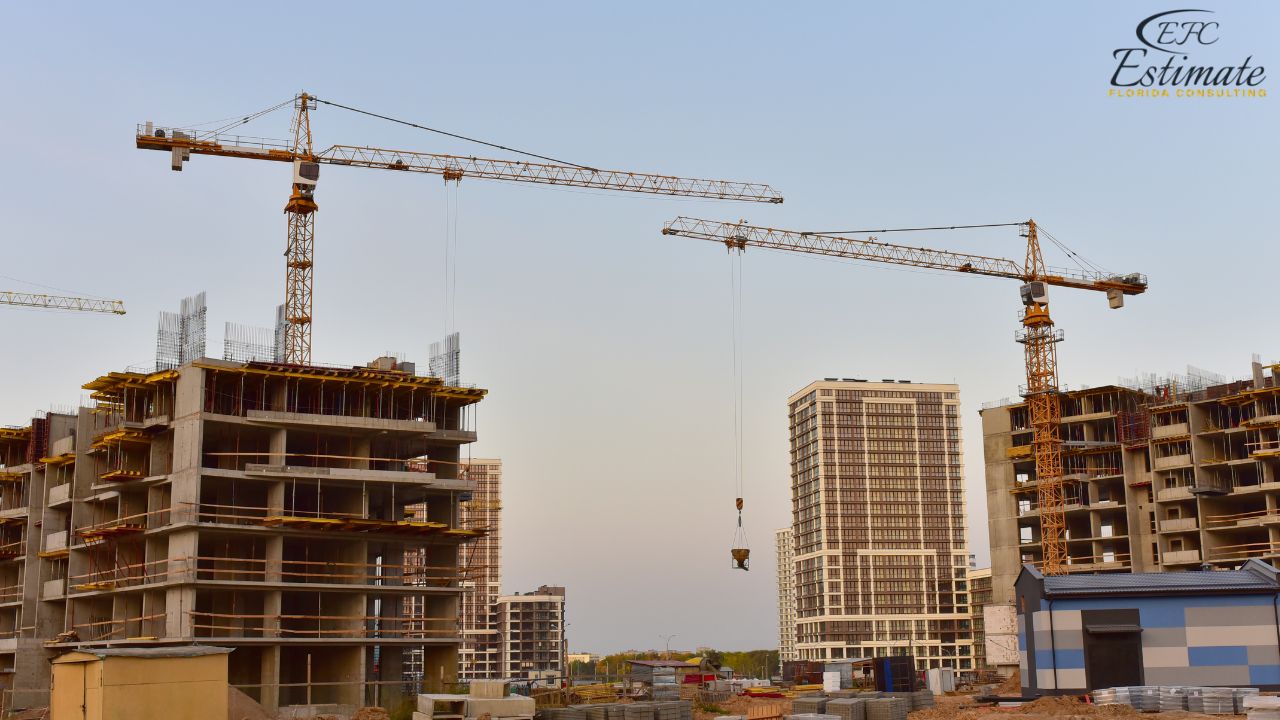
We Work for All Construction Trades
Construction trades encompass a variety of specialized roles, each critical to the successful completion of a project. Skilled tradespeople not only ensure the work is done right but also enhance safety, efficiency, and compliance with local building codes. From the initial groundwork to the final touches, every step requires expertise from dedicated professionals.
Average Construction Costs in South Miami, FL
Project Type | Estimated Cost Range (per square foot) |
Residential Construction | $250 – $400 |
Custom Home Construction | $500 – $850 |
Commercial Construction | $300 – $600 |
Luxury Homes | $600 – $1,200 |
Renovations and Additions | $200 – $450 |
Construction costs in South Miami are influenced by factors such as the type of project, material selection, labor requirements, and the complexity of the design. Properties located near the beach often necessitate additional structural considerations, such as elevated foundations and hurricane-resistant materials, to address environmental challenges. These investments not only ensure safety and compliance but also protect the long-term value of the property.
Factors Influencing Construction Costs
1. Project Type and Scope
The type and size of your construction project are primary factors in determining costs:
- Residential Construction: Standard homes cost $250 to $400 per square foot, offering practical layouts and essential features. Opting for energy-efficient upgrades, such as solar panels or enhanced insulation, can increase initial costs but lead to significant savings over time.
- Commercial Construction: Costs range from $300 to $600 per square foot. These projects often require advanced HVAC systems, reinforced structures, and custom interiors to cater to business needs, adding to overall expenses.
- Custom Homes: Tailored designs with high-end finishes, smart home systems, and unique layouts range from $500 to $850 per square foot. These homes prioritize luxury, technology, and individual style.
- Luxury Homes: At $600 to $1,200 per square foot, these properties include bespoke interiors, imported materials, infinity pools, and other upscale amenities. Building luxury homes requires collaboration with experienced architects and contractors to achieve the desired level of sophistication and quality.
Get Acquainted with Estimation
Avoid These Top 5 Construction Estimating Mistakes
How to Stay Profitable by Managing Subcontractor Costs Effectively?
2. Beachfront Location and Environmental Considerations
Beachfront properties in South Miami pose unique challenges, including exposure to saltwater corrosion, flooding, and storm surges. To address these issues:
- Elevated Foundations: Properties near the coastline often require elevated foundations to mitigate flooding risks. These structures are built using specialized techniques that add to the overall cost.
- Storm-Resistant Materials: Building materials like impact-resistant windows, reinforced concrete, and treated wood protect against extreme weather conditions, increasing the property’s resilience.
- Erosion Control Measures: Seawalls, drainage systems, and landscaping designed to prevent erosion are essential for beachfront properties, further adding to construction expenses.
3. Material Selection
The choice of materials is a significant factor in construction costs:
- Standard Materials: Concrete and drywall are cost-effective for basic builds and offer durability for standard projects.
- Luxury Materials: High-end finishes, such as imported marble, exotic hardwoods, and custom tile work, elevate aesthetics but significantly increase costs.
- Sustainable Options: Eco-friendly materials, such as bamboo flooring, reclaimed wood, and low-VOC paints, align with green building practices. While they may have higher upfront costs, they provide long-term savings on utilities and maintenance.
4. Labor Costs
Labor rates in South Miami range from $60 to $250 per hour, depending on the complexity of the project and the level of expertise required. Projects that involve luxury features or custom designs often demand highly skilled professionals, such as master electricians and specialized carpenters.
Hiring local contractors familiar with the area’s regulations and environmental challenges can improve efficiency and compliance.
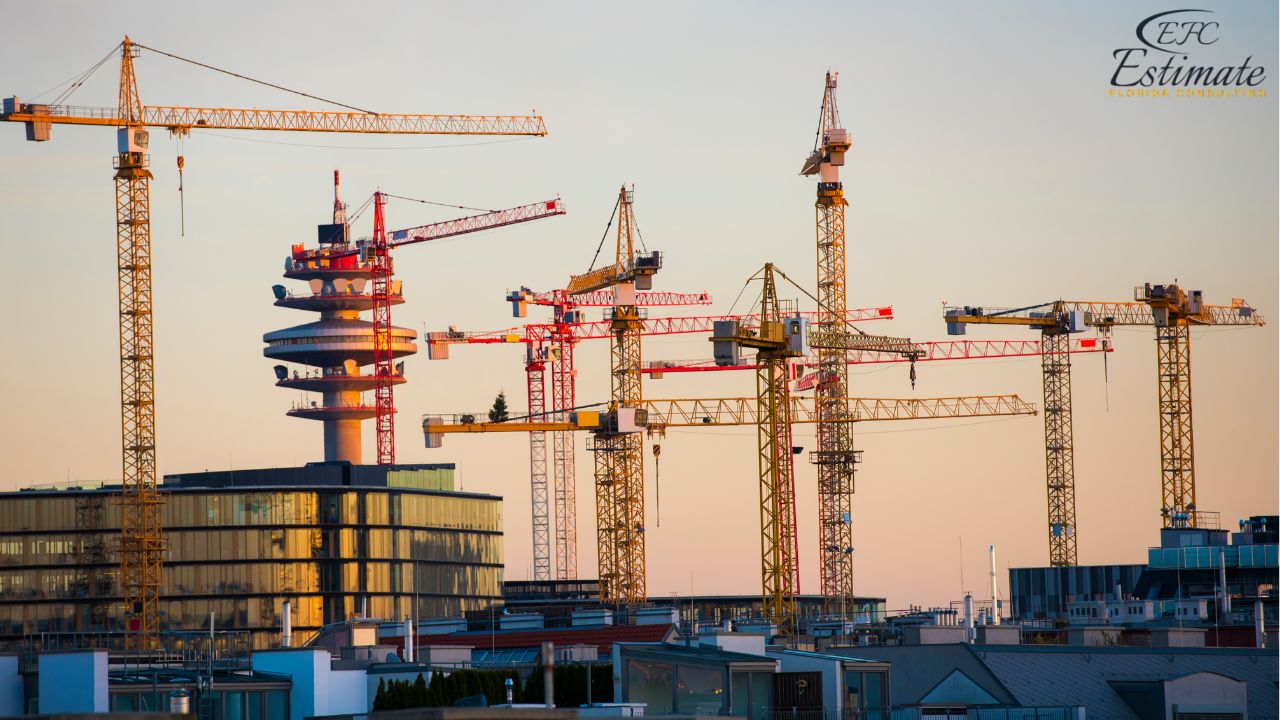
5. Design Complexity
Architectural designs with intricate features, such as curved walls, tiered layouts, or expansive glass installations, require specialized craftsmanship and longer timelines. These factors increase costs. Luxury homes often include additional elements like wine cellars, home theaters, and expansive outdoor living spaces with kitchens and pools, which further elevate budgets but enhance functionality and property value.
Construction Cost Estimation by Project Type
Residential Projects
Residential construction costs vary based on the property’s size, complexity, and finishes:
- Standard Homes: Ranging from $250 to $400 per square foot, these homes prioritize practicality and essential features, making them ideal for families.
- Custom Homes: Tailored designs with smart home integrations, high-end kitchens, and premium cabinetry cost $500 to $850 per square foot.
- Luxury Homes: High-end properties costing $600 to $1,200 per square foot provide unparalleled exclusivity and sophistication, often featuring beachfront access, infinity pools, and bespoke interiors.
Commercial Projects
Commercial construction in South Miami supports diverse business needs:
- Retail Spaces: Costs range from $300 to $600 per square foot, emphasizing customized interiors, advanced lighting, and durable materials for high-traffic areas.
- Office Buildings: Costs range from $300 to $500 per square foot, featuring ergonomic layouts, IT infrastructure, and energy-efficient systems.
Mixed-Use Developments: Combining residential and commercial functionalities, these projects cost $400 to $700 per square foot. Seamless integration of design elements is essential to maximize utility and aesthetics.
Renovations and Additions
Renovation costs depend on the project’s scope and the materials chosen:
- Kitchen Remodels: Costs range from $50,000 to $250,000, influenced by luxury appliances, custom cabinetry, and premium countertops like quartz or granite.
- Bathroom Renovations: Updates cost $20,000 to $100,000, with spa-like features such as steam showers, soaking tubs, and heated flooring driving budgets.
- Room Additions: Adding new rooms costs $200 to $450 per square foot, with features like skylights, built-in shelving, or soundproofing enhancing both functionality and appeal.
Find Your trusted Construction experts, Get started Now!
Advanced Construction Options
1. Energy-Efficient Features
Solar panels, energy-efficient windows, and advanced HVAC systems add $15,000 to $80,000 to the project’s budget. These features reduce long-term utility costs and qualify for tax incentives, making them valuable investments.
2. Smart Home Technology
Automated systems for lighting, climate control, and security improve convenience and modernity. Costs range from $15,000 to $100,000, depending on integration complexity and system sophistication.
3. Sustainable Materials
Eco-friendly options, such as reclaimed wood, bamboo flooring, and low-VOC paints, appeal to environmentally conscious buyers. These materials cost $400 to $850 per square foot and support long-term sustainability goals.
4. Outdoor Living Spaces
Outdoor kitchens, patios, and landscaped gardens add functionality and aesthetic value to properties. Costs range from $30,000 to $250,000, with fire pits, pergolas, and custom pools enhancing usability and appeal.
5. Custom Beachfront Features
Private docks, seawalls, and beach access points are essential for beachfront properties. These features cost $25,000 to $200,000, depending on size, materials, and complexity.
Cost Breakdown of Construction Components
Component | Cost Range |
Foundation | $10 – $35 per square foot |
Framing | $15 – $45 per square foot |
Roofing | $12 – $30 per square foot |
Plumbing | $5 – $25 per square foot |
Electrical Systems | $4 – $15 per square foot |
Finishes | $40 – $150 per square foot |
Permits and Inspections | $2,000 – $20,000 |
Tips for Managing Construction Costs
1. Detailed Planning
Collaborate extensively with architects and contractors to finalize every detail of the designs, budgets, and timelines before breaking ground. Thorough planning ensures that all aspects of the project are clearly defined, reducing the risk of unexpected issues during construction. By utilizing advanced 3D modeling tools, you can visualize potential challenges and make necessary adjustments early in the process. This proactive approach not only provides a clear understanding of the final outcome but also ensures a smoother construction process, minimizing costly changes, delays, and inefficiencies.
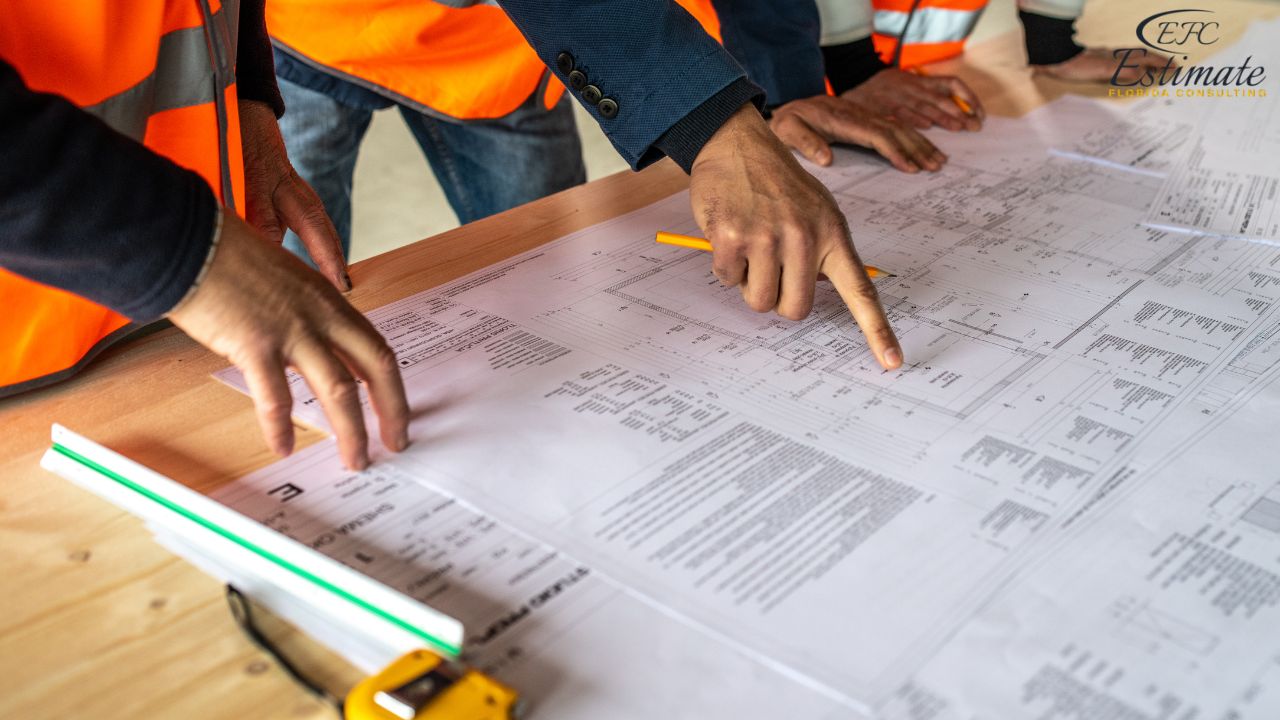
2. Optimize Material Choices
Select materials that strike the right balance between durability, aesthetics, and cost efficiency to meet your project’s needs. Prioritize high-quality options that align with your budget and long-term goals. To reduce expenses, consider bulk purchasing and sourcing materials from reliable local suppliers, which can help lower transportation costs and support timely delivery. Additionally, researching alternative or sustainable materials may provide innovative options that enhance both quality and cost-effectiveness.
3. Hire Skilled Professionals
Hire licensed and experienced contractors who are familiar with South Miami’s unique construction environment, including local regulations, climate challenges, and building codes. Take the time to verify their references, review portfolios of completed projects, and check for relevant certifications or memberships in professional organizations. Working with skilled professionals ensures high-quality workmanship, compliance with local standards, and a smoother construction process, ultimately delivering reliable and lasting results.
4. Incorporate Energy Efficiency
Integrate energy-efficient features into your project to reduce long-term utility costs and increase property value. Consider options such as LED lighting, tankless water heaters, smart thermostats, and energy-efficient windows and insulation. These upgrades not only lower energy consumption but also contribute to environmental sustainability. Additionally, incorporating renewable energy solutions like solar panels can further enhance efficiency while boosting the overall appeal and marketability of your property.
5. Strategic Scheduling
Schedule your construction project during off-peak seasons to capitalize on reduced demand for labor and materials, which can lead to significant cost savings. Planning strategically also allows for better availability of skilled professionals and faster turnaround times. By aligning your timeline with periods of lower industry activity, you can optimize resources, reduce overall expenses, and ensure a smoother and more efficient construction process.
Download Template For Construction Project Breakdown
- Materials list updated to the zip code
- Fast delivery
- Data base of general contractors and sub-contractors
- Local estimators

Conclusion
Construction in South Miami, FL, demands meticulous planning, specialized expertise, and a clear understanding of costs. By focusing on quality, sustainability, and strategic budgeting, you can achieve a successful project that meets your expectations and enhances the coastal architectural landscape. At Estimate Florida Consulting, we provide expert guidance and detailed cost estimates tailored to South Miami’s unique requirements. Contact us today to bring your vision to life.
Frequently Asked Question
Construction cost is calculated by multiplying the total area of the project (in square feet or square meters) by the construction rate per unit area. The construction rate can vary based on several factors, including the project’s location, cost of labor, price of raw materials, and the type of construction work involved.
Estimating project costs involves a systematic approach to ensure accuracy and profitability. Here’s an 8-step guide:
- Refine the Concept and Project Scope: Clearly define the project’s objectives, deliverables, and requirements.
- Gather Data from Past Projects: Use historical data from similar projects to benchmark costs and identify trends.
- Break Down the Project into Phases and Tasks: Create a detailed work breakdown structure (WBS) for better cost allocation.
- Calculate the Cost for Each Task: Estimate labor, materials, equipment, and overhead costs for each task.
- Tackle Optimism Bias with a Three-Point Estimate: Use best-case, worst-case, and most-likely scenarios to avoid underestimating.
- Add a Project Buffer to Protect Profits: Include contingency funds to cover unexpected expenses.
- Don’t Forget Hidden Costs: Account for permits, insurance, taxes, and other indirect costs.
- Review and Validate the Estimate: Double-check calculations and get feedback from experts to ensure accuracy.
A cost estimator is the professional responsible for preparing accurate cost estimates for a project. There are different types of cost estimators based on their area of expertise, such as:
- Building Estimator: Specializes in estimating costs for residential, commercial, and industrial building projects.
- Electrical Estimator: Focuses on estimating costs for electrical systems and installations.
- Chief Estimator: Oversees the entire estimating team and ensures the accuracy and completeness of cost estimates.
These professionals use their expertise, industry knowledge, and data analysis to provide detailed and reliable project cost assessments.
A cost estimator is primarily responsible for calculating the total cost of a project, including materials, labor, equipment, and overhead. However, the project manager also plays a key role in monitoring and managing these costs throughout the project’s lifecycle.
During the project’s various phases, the project manager refers to the initial cost estimate to determine the required investment and ensure the project stays within budget. As the project progresses, they review and adjust the cost calculations as needed to manage expenses and avoid budget overruns.
A Level 5 cost estimate, also known as a Class 5 estimate or Rough Order of Magnitude (ROM) estimate, is a high-level, preliminary cost estimate used primarily for capital planning and early project feasibility studies.
This estimate provides a broad cost range and is typically based on limited project information. Because of this, its accuracy can vary widely — from 50% below actual costs to over 100% above actual spend. Level 5 estimates are often referred to as "ballpark" figures and are used for early-stage decision-making, not for final budgets or detailed planning.
To prepare an accurate and detailed cost estimate, the following documents and information are essential:
- Complete Set of Detailed Drawings: Architectural, structural, and MEP (Mechanical, Electrical, Plumbing) drawings provide visual and technical details of the project.
- Specifications of Items of Work: Detailed descriptions of materials, quality standards, and methods of construction.
- Prevalent Rates of Construction Items: Current market rates for labor, materials, equipment, and other resources.
- Standard Mode of Measurement: Accepted industry standards for measuring and quantifying construction work (like square feet, cubic meters, etc.).
- Physical Condition of the Work Site: Site surveys, soil reports, and environmental conditions that may impact construction costs.
- Exact Location of the Work Site: Site accessibility, transportation costs, and local regulatory requirements that influence pricing and logistics.
Having this information ensures that the estimate is both comprehensive and accurate, helping prevent cost overruns and unexpected issues during project execution.
Comprehensive Trade-Specific Estimates
At Estimate Florida Consulting, we offer detailed cost estimates across all major trades, ensuring no part of your project is overlooked. From the foundation to the finishing touches, our trade-specific estimates provide you with a complete and accurate breakdown of costs for any type of construction project.

Testimonials
What Our Clients Say
We take pride in delivering accurate, timely, and reliable estimates that help contractors and builders win more projects. Our clients consistently praise our attention to detail, fast turnaround times, and the positive impact our estimates have on their businesses.
Estimate Florida Consulting has helped us win more bids with their fast and accurate estimates. We trust them for every project!

Steps to Follow
Our Simple Process to Get Your Estimate
01
Upload Plans
Submit your project plans, blueprints, or relevant documents through our online form or via email.
02
Receive Quotation
We’ll review your project details and send you a quote based on your scope and requirements.
03
Confirmation
Confirm the details and finalize any adjustments to ensure the estimate meets your project needs.
04
Get Estimate
Receive your detailed, trade-specific estimate within 1-2 business days, ready for your project execution.


